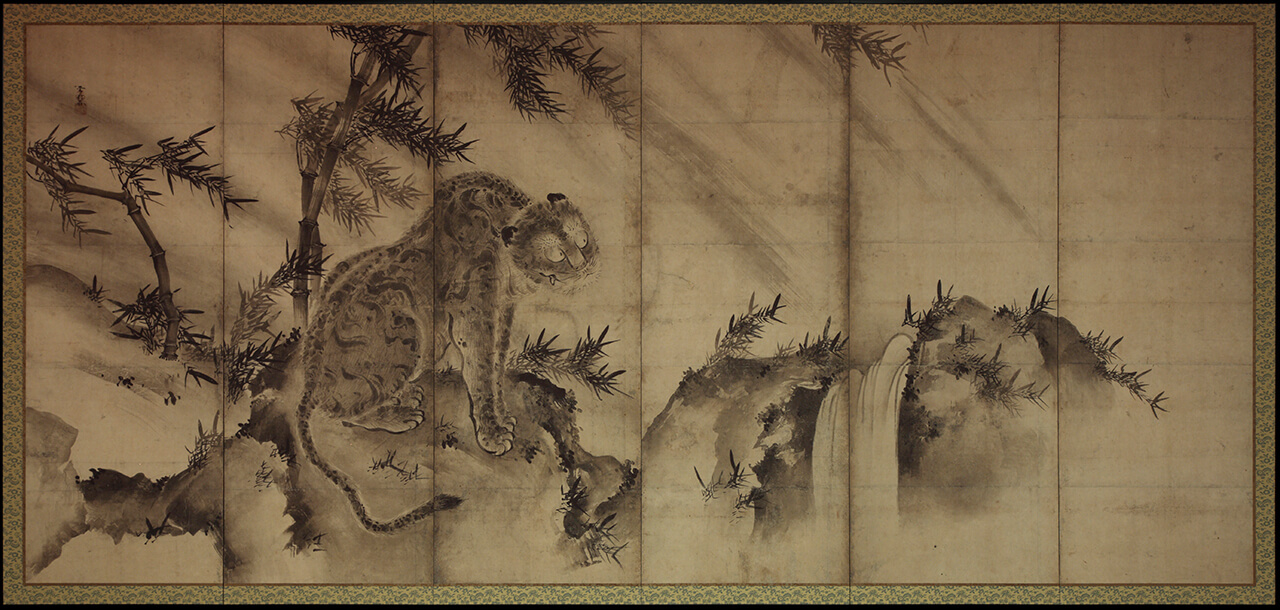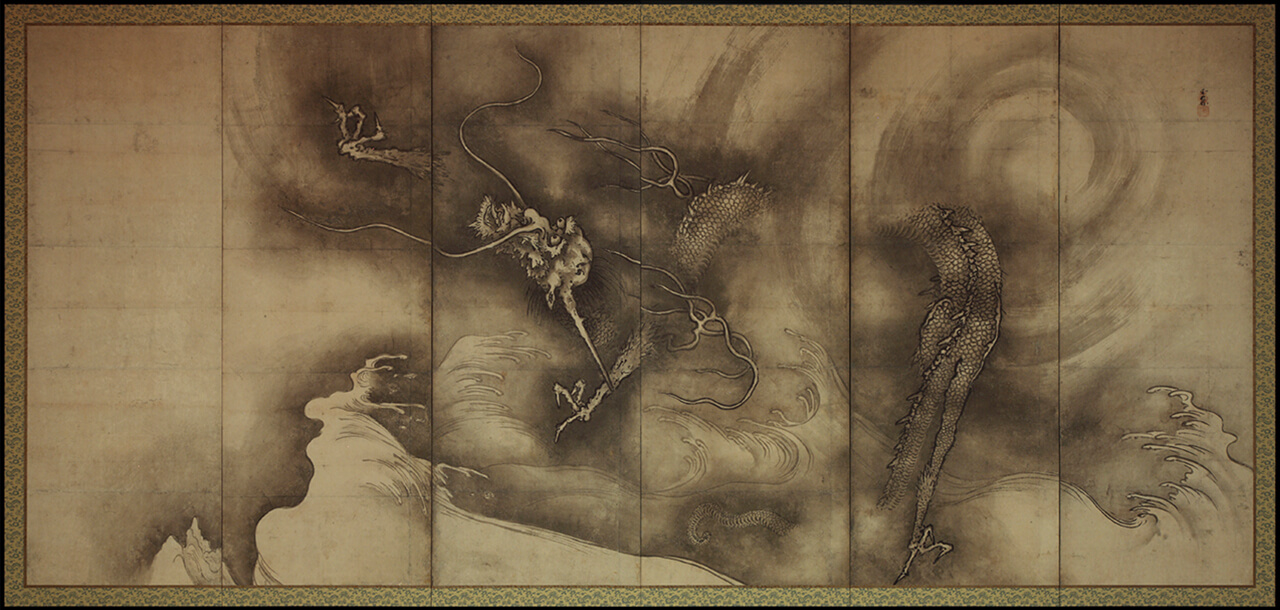Dragon and Tiger
Facsimiles of Sesson Shukei (Japanese, 1504-1589). Dragon and Tiger.
Pair of six-fold screens; ink on paper, 171.5 x 365.8 cm, 157.2 x 339.0 cm. The Cleveland Museum of Art. Purchase from the J.H. Wade Fund, 1959.136.1-2
These images are based on the high resolution facsimile produced by the Tsuzuri Project. Unauthorized copying, duplication, or transfer of these images is strictly prohibited.
DATA
- Artist:
- Sesson Shukei
- Historical era:
- Muromachi (16th century)
- Material:
- printed on washi paper
- Medium:
- Pair of six-fold screens
- Theme:
- High Resolution Facsimile of Japanese Art Abroad
- Size:
- Each screen H157.2 × W339.0 cm
- Recipient:
- Sounji Temple (Daitokuji school, Rinzai sect)MAP
[Original]
- Current owner:
- The Cleveland Museum of Art
- Material:
- ink on washi paper
DESCRIPTION
Sesson was born in Hitachi (current Ibaragi prefecture), and began studying painting with Zen influences at an early age. After he developed his distinct painting style, Sesson established himself as an artist and began traveling throughout Japan. This work was painted while he worked in Odawara, circa 1550. The dragon is calling for rain, symbolizing spring which is considered the fountain of life. On the other side, the tiger calls for the wind, symbolizing autumn which is considered the end of life. While dragons and tigers are usually associated as sacred and ferocious, in this painting, both animals have rather amusing expressions. The tiger appears to glare at the dragon with eyes of a cat, and something about the look on the swirling dragon’s face appears affectionate. On top of his expressive accuracy, Sesson skillfully lends a playful flair to an otherwise magnificent theme.


